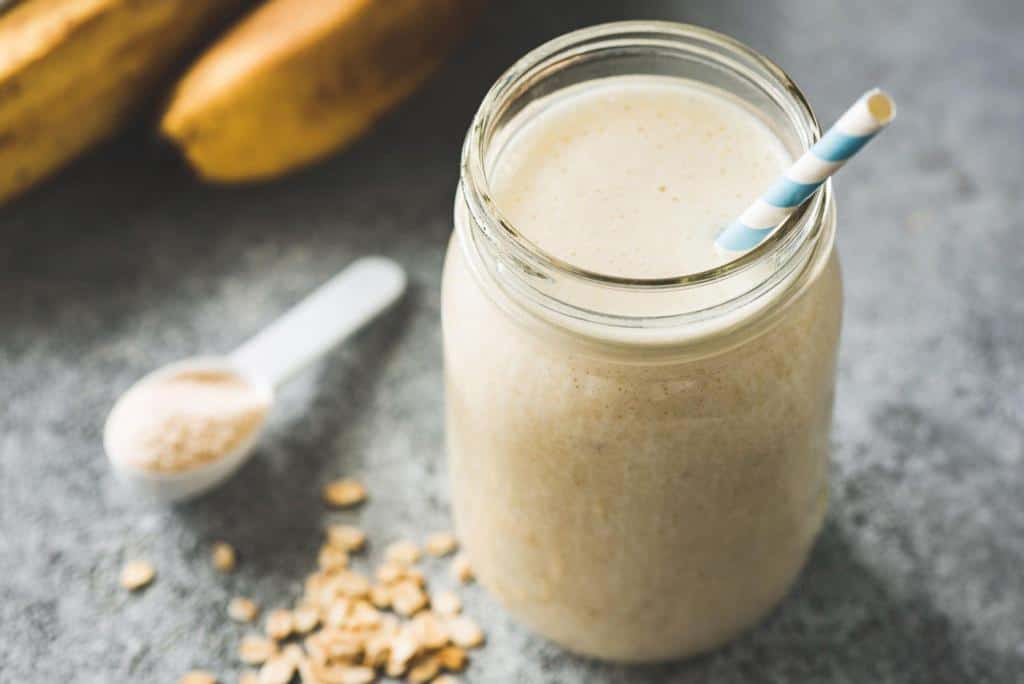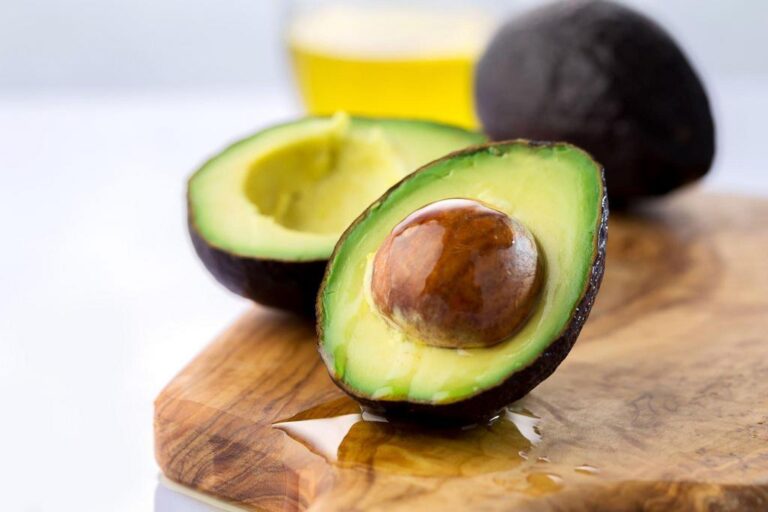What Happens If You Drink Expired Oat Milk? Can It Make You Sick?

Are you a fan of oat milk? This dairy-free milk alternative has become increasingly popular over the years, and for good reason. Oat milk is creamy, delicious, and an excellent source of essential nutrients. However, like all dairy-free milk alternatives, oat milk has a shorter shelf life than traditional dairy milk.
This begs the question, “What happens if you drink expired oat milk?” Is it safe, or can it lead to health complications? In this article, we’ll dive into the world of oat milk, its shelf life, and the potential risks of consuming expired oat milk. So, grab a cup of fresh oat milk and let’s explore together.
Understanding the Expiration Date on Oat Milk
The expiration date on oat milk is a recommendation from the manufacturer for when the product is at its peak quality. It’s important to note that the expiration date is not an exact science, and the actual shelf life of the oat milk can vary depending on several factors.
These factors include the brand of oat milk, the storage conditions, and the temperature at which it was transported. Therefore, it’s always a good idea to use your senses to determine if the oat milk is still fresh and safe to consume.
The expiration date on the packaging is a good indicator of when the oat milk will start to go bad. Like any other food product, oat milk has an expiration date. Oat milk typically has a shelf life of 7 to 10 days when stored in the refrigerator, and it is crucial to consume it within this timeframe.
What Happens If You Drink Expired Oat Milk?
Oat milk is a popular dairy-free milk alternative that is made from oats and water, and like other dairy alternatives, it has a shorter shelf life than traditional dairy milk. Drinking expired oat milk can lead to a range of adverse health effects. As with any expired food item, consuming expired oat milk can cause food poisoning, which can lead to serious health complications.
Consuming oat milk that has gone bad can lead to a range of unpleasant symptoms, including vomiting, diarrhea, stomach cramps, fever, headaches, body aches, and dehydration. These symptoms can vary in severity and last for several days, depending on the extent of the food poisoning.
By checking the expiration date on the package before consuming it, you can avoid contracting a foodborne illness from oat milk that has gone bad. Oat milk that has gone bad should be discarded immediately to avoid the risk of food poisoning. Proper storage and handling of oat milk can also help prevent spoilage and the growth of harmful bacteria.
Potential Health Risks Associated with Consuming Expired Oat Milk
The potential health risks associated with consuming expired oat milk can range from mild to severe, depending on the type of bacteria present and the individual’s health status. Some of the common health risks associated with drinking expired oat milk include:
- Food poisoning: Drinking expired oat milk can lead to food poisoning, which can cause symptoms such as vomiting, diarrhea, stomach cramps, and fever.
- Allergic reactions: Oat milk that has gone bad can contain mold, which can trigger allergic reactions in some individuals.
- Weakened immune system: Consuming expired oat milk can weaken the immune system, making the body more susceptible to other infections and illnesses.
- Gastrointestinal problems: Drinking expired oat milk can irritate the digestive system and cause gastrointestinal problems such as bloating, gas, and abdominal pain.
Common Symptoms of Foodborne Illness from Expired Oat Milk
Foodborne illness is a common health risk associated with consuming expired oat milk. The symptoms of foodborne illness can vary depending on the type of bacteria present, but some of the common symptoms include:
- Nause
- Vomiting
- Diarrhea
- Stomach cramps
- Fever
- Headache
- Body aches
- Dehydration
These symptoms can range from mild to severe and last for a few hours to several days. If you experience any of these symptoms after consuming expired oat milk, you should seek medical attention immediately.
It’s important to note that the symptoms of food poisoning can be severe in some cases, particularly in vulnerable populations such as the elderly, pregnant women, and those with weakened immune systems. If you fall into one of these categories, it’s crucial to exercise extra caution when consuming any food item, including oat milk.
Steps to Take If You Have Consumed Expired Oat Milk
If you have consumed expired oat milk, take the necessary steps to minimize the risk of foodborne illness. Here are some steps to take if you have consumed expired oat milk:
- Discard the oat milk: If you have consumed expired oat milk, it is best to discard the remaining portion immediately.
- Monitor your symptoms: If you experience any symptoms of foodborne illness such as vomiting, diarrhea, or fever, it is important to seek medical attention immediately.
- Stay hydrated: Drinking plenty of fluids can help prevent dehydration caused by vomiting or diarrhea.
- Practice good hygiene: wash your hands regularly with soap and water to prevent the spread of bacteria.
Proper Storage and Handling of Oat Milk to Prevent Spoilage
Proper storage and handling of oat milk are crucial to preventing spoilage and the growth of harmful bacteria. It’s essential to store oat milk correctly to prevent spoilage. Here are some tips to help you store and handle oat milk properly:
- Refrigerate oat milk immediately after opening it to slow down the growth of bacteria and prevent spoilage. Make sure to keep it at a temperature of 40 °F or below.
- Store oat milk in the back of the refrigerator, where it is coldest.
- Do not leave oat milk at room temperature for an extended period, as it can promote the growth of bacteria.
- Keep it away from light: Oat milk should be stored in a dark place, away from direct sunlight. Exposure to light can cause the milk to spoil faster.
- Do not freeze oat milk, as it can alter the texture and flavor.
- Keep the container sealed: Once you open the container of oat milk, make sure to keep it tightly sealed. This will help prevent bacteria from getting into the milk and causing it to spoil.
- Check the expiration date on the package before consuming oat milk.
- Shaking the oat milk before using it can also help ensure that the ingredients are well mixed, which can prevent spoilage.
Alternatives to Expired Oat Milk for Your Morning Routine
If you are looking for alternatives to oat milk for your morning routine, there are several options available, including:
- Soy milk: Soy milk is a popular dairy alternative that has a similar texture and taste to cow’s milk. It is also rich in protein, calcium, and vitamin D.
- Almond milk: Almond milk is a nut-based milk that has a creamy texture and a slightly sweet flavor. It is also low in calories and high in vitamin E.
- Coconut milk: Coconut milk is a rich and creamy dairy alternative that is often used in Asian and Indian cuisine. It is also high in lauric acid, which has antimicrobial and antiviral properties.
- Hemp milk: Hemp milk is a plant-based milk that is made from hemp seeds. It is high in protein, omega-3 fatty acids, and calcium.
- Rice milk: Rice milk is a dairy-free milk that is made from milled rice and water. It has a slightly sweet flavor and is often used in desserts and baking recipes.
Conclusion
In conclusion, consuming expired oat milk can pose serious health risks and lead to foodborne illness. It is important to check the expiration date on the package and discard oat milk that has gone bad. Proper storage and handling of oat milk can also help prevent spoilage and the growth of harmful bacteria. If you experience any symptoms of foodborne illness after consuming expired oat milk, it is important to seek medical attention immediately. Finally, there are several alternatives to oat milk available for your morning routine that are safe and healthy to consume.






